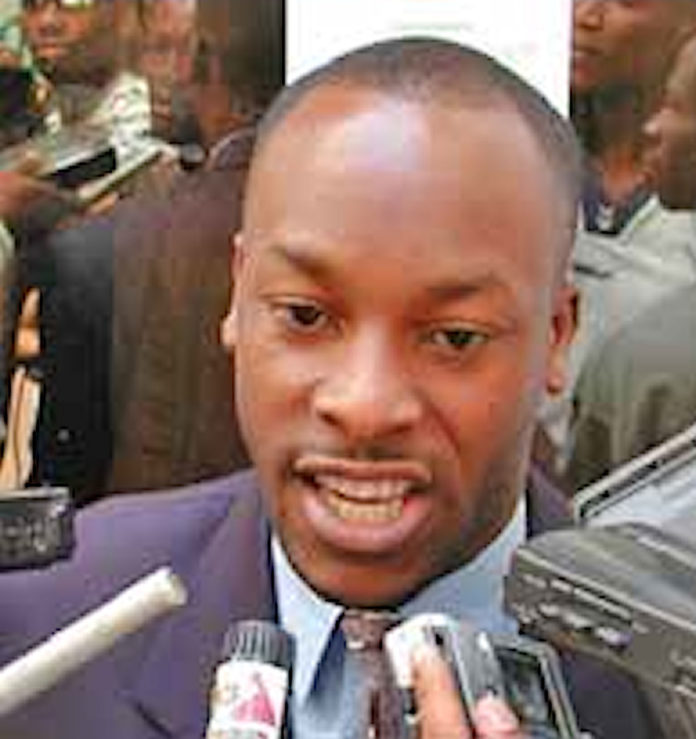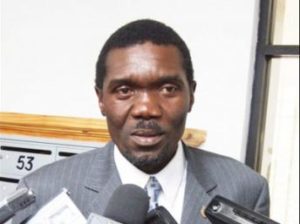
Humans, unlike other animals, possess what philosophers call reason. Without entering into philosophical analysis – that is not the purpose of this chronicle at this point in the Haitian electoral process – it is now urgent that all people endowed with this faculty use their common sense.
Using reason, let’s examine the final results of the Nov. 20, 2016 general elections, results which were challenged by the three main presidential candidates and some candidates for seats in the Senate and the Chamber of Deputies.
The presidential candidates – Dr. Maryse Narcisse of Fanmi Lavalas, Jude Célestin of LAPEH, and Moïse Jean-Charles of the Pitit Dessalines Platform – began protesting even before the results were published, giving a first round victory to their competitor, Jovenel Moïse of the Haitian Bald Headed Party (PHTK). But there was not just one election that day. There were also partial legislative elections (senators and deputies) and municipal races.
In principle, we should begin to challenge when we have in our possession all the results. But in Haiti, politicians live by different rules. They challenge first, then see what happens later.
Recent history encouraged adopting this approach. A verification commission found that the 2015 presidential elections were fraudulent. Therefore, in 2016, the three protesting presidential candidates immediately suspected fraud.
After the preliminary results were released, the three runners-up brought the matter before the Electoral Courts. They contended that there was massive fraud, resulting in an “electoral coup.” They demanded proper verification, which is legitimate, otherwise their competitor would win the election dishonestly.
But in the meantime, the results of other races were released. They revealed a spectacular sweep of legislative and municipal elections by the PHTK and its allies.
This made it more difficult for the three protesting candidates to make their case, since the legislative results seemed to confirm the results of the presidential election. But the Fanmi Lavalas, Pitit Dessalines, and LAPEH could not now retreat. They had to defend their position, as Moïse Jean-Charles was fond of saying, “until the bitter end.”
Almost everywhere, the candidates of the PHTK and its allies won seats, apparently confirming that the few voters who had their vote counted (less than 19% of the electorate) did indeed vote in favor of Jovenel Moïse. The candidates of PHTK and its allies are also in the lead for second round races. In some races, the second round will be between two candidates of the same family, such as a PHTK versus KID, or Bouclier versus PHTK or the Haiti in Action party (AAA) of Sen. Youri Latortue. The candidates of Fanmi Lavalas and Pitit Dessalines are rare in the run-offs for the final third of the Senate. LAPEH has none. What a strange surprise!
In this electoral landscape, there are several surprising cases. Take, for example, the Senate candidate for the West Department, the PHTK’s Fednel Monchéry. This candidate who was ridiculed throughout the campaign, in the press and by his opponents, surprisingly will be in the Jan. 29 run-off. He was up against such heavyweights as Assad Volcy, a candidate (albeit dissenting) of Pitit Dessalines, Dr. Schiller Louidor of Fanmi Lavalas, and the well-known sports journalist Patrice Dumont (RPH), whom he will face in the second round.
Another significant race was the easy victory in the Grand’Anse Department of paramilitary leader Guy Philippe of Consortium. (On Jan. 5, he was arrested by the Haitian police and turned over to agents of the U.S. Drug Enforcement Agency or DEA). Elected as the second Senator of the Grand’Anse was the former President of the Chamber of Deputies, Sorel Jacinthe, under the banner of René Préval’s INITE Patriotic Platform.
The PHTK and its allies also had victories in the North. Lavalas defectors to PHTK and its allies beat their former party colleagues. Nawoom Marcellus, under the Bouclier’s banner, and Dieudonné Etienne Luma of the PHTK both beat out Kelly C. Bastien, the former Senate President who came in third. In fact, the PHTK’s Luma is the only woman to sit in the Senate of Haiti’s 50th legislature.
In the Center Department, there is another “enfant terrible” who left the Lavalas for the PHTK: Willot Joseph. He sailed to victory with his colleague, Wilfrid Gélin. The latter was apparently convicted in the U.S. in the 1980s for trafficking Haitians illegally into Florida.
In the Northeast Department, the PHTK won a stunning upset by former deputy Wanique Pierre who garnered 58.78% of the votes against one of the leaders of the opposition against Michel Martelly and Jovenel Moïse, former senator Jean-Baptiste Bien-Aimé. This well-known Lavalassian, who has never betrayed his camp since the beginning, was beaten in a region where he had long been top-dog.

Curiously, another ESPWA baron who had joined with Martelly in 2012 before returning to Jude Célestin in 2015 and finally joining Jovenel Moïse in 2016 is former Sen. Joseph Lambert, who had been badly beaten in 2015. He was elected in the first round in the Southeast under the banner of his small local party KONA. In the space of a few months, what changed? Did different people vote for him, or did the same people change their vote? His indisputable victory with 53.78% of the votes dissuaded his opponent from contesting the election. So Joseph Lambert, who had paid lip service to Jude Célestin in 2015 and then supported Jovenel Moïse in 2016, now will be a senator in the latter’s camp. (For the record, the PHTK had no candidate running against him.)
In the Center Department’s Senate run-off, two allied former deputies are facing each other: Abel Descollines of KID and Rosny Célestin of PHTK. No matter who wins, he will be an elected member of the pro-presidential parliamentary group. In the Artibonite, it is the same scenario. A sitting deputy, Garcia Delva, elected from the PHTK, had chosen to run under the banner of AAA, a PHTK ally, for the Senate. He will face in the second round another PHTK ally, Marc Antoine Adolphe of Bouclier.
In the North-West, it is a strong, even unconditional, supporter of Jovenel Moïse, Kedlaire Augustin, who will represent the PHTK against outgoing senator François Lucas Sainvil of the obscure regional party, MOSANOH .
The same is true for the Nippes, the home region of Interim President Jocelerme Privert. Bouclier’s Denis Cadeau, former Director General of the National Education Ministry will face off against Louberson Vilson of Fanmi Lavalas. It will be a close battle because the two candidates had virtually the same first-round percentages: 21.03% for the Lavalas candidate and 21.08% for the PHTK ally, Bouclier.
It is practically the same situation in the South Department where the two candidates are neck-and-neck. An illustrious unknown, Pierre François Sildor of PHTK, got 25.51% of the vote, slightly leading the political colossus of the region, former Quaestor of the Senate Fritz Carlos Lebon of Fanmi Lavalas, with 25.33% of the votes.
The battle is expected to be tighter in the Grand’Anse Department where veteran politician, Sen. Andris Riché, a flag bearer of the Struggling People’s Organization (OPL), faces Jean Rigaud Bélizaire of Guy Philippe’s Consortium.
Finally, the North Department PHTK candidate Jean Marie Ralph Fethière, with 35.68% of votes, faces the Pitit Dessalines’ only run-off candidate for the final third of the Senate, Théodore Saintilus, who garnered 14.04% of the votes.
This is undoubtedly a great advantage for the President-elect who, in the first round or in the second of the partial legislative elections, has practically a majority in the Senate. In the Lower House, the PHTK and allies are already in the majority. In the partial elections for 25 posts, PHTK and its allies picked up five more deputies. While the nebula of small and large parties (Renmen Ayiti, Canaan, Kanpe platform, KONA, VERITE, OPL, Fanmi Lavalas, APLA, Pitit Dessalines, Fusion) shares the remaining 20 posts.
Three women were elected to the Chamber of Deputies in the first round of these partial elections. They were Saint-Jean Marie Gladyce Lyndy with 53% of the votes for Jérémie; Guerda Bellevue with 51% of the votes for Savanette; and Raymonde Rival with 55% of votes for Cornillon/Grand-Bois.
Basically, the legislative results correspond to the presidential results. There would be even more doubt about Jovenel Moïse’s victory if his party and its allies did poorly in the legislative races.
However, it must be remembered that over 81% of the electorate either did not or could not vote. Could this minimal voter participation have been programmed to ensure a victory by Haiti’s right-wing forces?
This is a translation of the 138th installment of Catherine Charlemagne’s weekly French-language series entitled “Haiti, Chronicle of an Electoral Crisis.”









